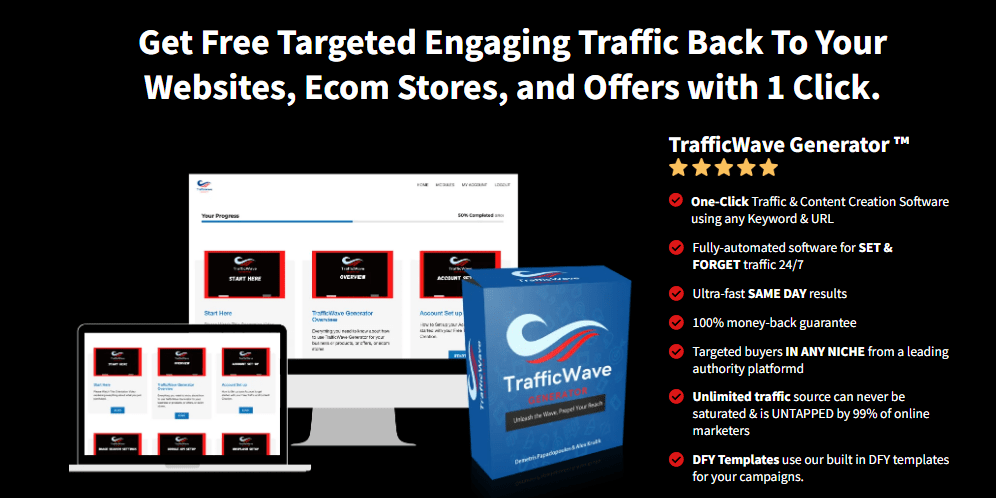Just as the digital world evolves, so do marketing strategies. In today’s competitive landscape, harnessing the power of AI marketing automation has become not just a trend, but a necessity for businesses looking to stay ahead. This ultimate guide will equip you with the knowledge and tools needed to implement AI marketing automation strategies effectively, driving growth and success for your brand.
Key Takeaways:
- Understand your business goals: Before implementing AI marketing automation strategies, it is crucial to clearly define your business goals and objectives to align your automation efforts effectively.
- Choose the right AI tools: Select the AI marketing automation tools that best suit your business needs and offer features like predictive analytics, personalization, and segmentation to enhance your marketing campaigns.
- Segment your audience: Utilize AI technology to segment your audience based on behavior, demographics, and interests, allowing you to personalize your marketing messages and improve engagement.
- Automate customer interactions: Implement AI chatbots and conversational marketing techniques to automate customer interactions, provide instant support, and deliver personalized recommendations.
- Measure and optimize: Continuously monitor the performance of your AI marketing automation strategies, analyze data to gain insights, and optimize your campaigns for improved ROI and customer satisfaction.


Understanding AI Marketing Automation
What is AI Marketing Automation?
One of the most significant advancements in marketing technology is the integration of artificial intelligence (AI) with automation tools. AI marketing automation refers to the use of AI technologies to streamline and optimize marketing processes, making them more efficient and effective. By leveraging AI algorithms, businesses can analyze vast amounts of data, personalize marketing strategies, predict consumer behavior, and automate repetitive tasks to drive better results.
- Explain the concept of AI marketing automation.
- How does AI enhance marketing automation?
- Benefits of AI in marketing automation.
- Examples of AI tools used in marketing automation.
Key Components and Technologies Behind AI Marketing Automation
Any successful implementation of AI marketing automation relies on several key components and technologies. These include machine learning algorithms, natural language processing, predictive analytics, and sentiment analysis. Machine learning algorithms are crucial for analyzing data and making real-time decisions, while natural language processing helps in understanding and generating human language. Predictive analytics enables businesses to forecast future trends, and sentiment analysis gauges customer attitudes and emotions towards a brand or product.
- Role of machine learning in AI marketing automation.
- Importance of natural language processing in marketing.
- How predictive analytics shapes AI marketing strategies.
- Sentiment analysis applications in marketing automation.
Technologies Behind AI Marketing Automation
Technologies such as machine learning, natural language processing, and predictive analytics form the core of AI marketing automation. Machine learning algorithms enable systems to learn from data, identify patterns, and make decisions without explicit programming. Natural language processing helps computers understand, interpret, and generate human language, enabling chatbots and voice assistants to interact seamlessly with users. Predictive analytics utilizes historical data and statistical algorithms to forecast future trends and behaviors, aiding marketers in making informed decisions.
- Machine learning techniques in AI marketing automation.
- Applications of natural language processing in marketing automation.
- Predictive analytics tools for marketers.
- How AI technologies revolutionize marketing automation.
Marketing automation has revolutionized the way businesses engage with their audience, allowing for personalized and targeted campaigns that drive higher conversion rates. However, the reliance on AI also introduces risks such as data privacy concerns and potential algorithm bias. It is crucial for businesses to maintain transparency and ethical standards when implementing AI marketing automation to build trust with consumers and avoid backlash.
Getting Started with AI Marketing Automation
Many businesses are now turning to AI marketing automation to streamline their marketing efforts, increase efficiency, and drive better results. Implementing AI in marketing can seem daunting at first, but with the right approach, it can revolutionize your marketing strategies. Here are some key steps to consider when getting started with AI marketing automation:
- How can AI enhance customer segmentation?
- What are the benefits of using AI for personalized marketing?
- How can AI improve campaign performance and ROI?
- What are the best practices for integrating AI into existing marketing workflows?
Assessing Your Business Readiness for AI Integration
Readiness to integrate AI into your marketing operations involves evaluating your current infrastructure, data quality, team expertise, and overall readiness for technological advancements. Consider the following factors before implementing AI marketing automation:
- What is your current data management capability?
- Do you have the necessary skills to handle AI technology?
- Is your team open to adopting AI solutions?
- How will AI align with your overall marketing goals?
Setting Clear Objectives for AI Marketing Automation
Now, when setting clear objectives for AI marketing automation, it’s important to define what you want to achieve with AI integration. Whether it’s improving lead generation, enhancing customer engagement, or optimizing marketing campaigns, establishing clear goals will guide your AI implementation strategy effectively.
- What specific KPIs do you want AI to impact?
- How will AI help you better understand your target audience?
- What are your expectations regarding ROI from AI implementation?
- How can AI help you personalize the customer journey?
Now, it’s time to examine deeper into setting clear objectives for AI marketing automation. By clearly defining your goals and expectations, you can align your AI strategies with your business objectives and maximize the benefits of AI technology in marketing.
- How can AI help optimize your marketing budget allocation?
- What role can AI play in improving customer retention?
- How will AI enhance the scalability of your marketing efforts?
- In what ways can AI improve the efficiency of your marketing campaigns?
Gaps in understanding your readiness for AI integration or setting vague objectives can hinder the successful implementation of AI marketing automation. Businesses must address these critical aspects to ensure a seamless transition and maximize the benefits that AI can bring to their marketing strategies.
Planning Your AI Marketing Automation Strategy
Despite the growing popularity of AI marketing automation, many businesses struggle with implementing effective strategies. To help navigate this complex landscape, it is necessary to have a well-thought-out plan in place. This chapter will probe into the key aspects of planning your AI marketing automation strategy to ensure successful implementation and results.
- How can AI enhance marketing automation processes?
- What are the best practices for integrating AI into marketing strategies?
- How to leverage data analytics in AI marketing automation?
How to Develop an Effective AI Marketing Automation Plan
- What are the key components of an AI marketing automation plan?
- How to set measurable goals for AI marketing automation?
- What role does personalization play in an effective AI marketing automation plan?
Effective AI marketing automation plans should begin with a comprehensive analysis of your current marketing strategies and goals. Identify areas where automation can streamline processes, improve customer engagement, and drive conversions. Set measurable objectives that align with your overall business objectives, whether it’s increasing lead generation, improving customer retention, or boosting sales. Personalization is key in today’s marketing landscape, so ensure your plan includes strategies for delivering tailored content and messages to specific audience segments.
Choosing the Right AI Marketing Automation Tools and Platforms
- What are some popular AI marketing automation tools available in the market?
- How to evaluate the scalability of AI marketing automation platforms?
- What are the key factors to consider when choosing AI marketing automation tools?
Choosing the right AI marketing automation tools and platforms is crucial for the success of your strategy. Look for tools that offer robust features such as advanced analytics, AI-driven insights, and seamless integration with your existing systems. Consider the scalability of the platform to ensure it can grow with your business needs. Factors to evaluate include ease of use, customization options, pricing, and customer support. Conduct thorough research and, if possible, test out different platforms to find the best fit for your business.
Strategy: When planning your AI marketing automation strategy, it is critical to align it with your business objectives and target audience. Choosing the right tools and platforms can significantly impact the success of your automation efforts. Make sure to measure and analyze the results regularly to optimize and fine-tune your strategy for maximum impact.
Implementing AI Marketing Automation
Once again, marketing automation powered by artificial intelligence (AI) is revolutionizing the way businesses engage with their customers. Implementing AI marketing strategies can dramatically enhance efficiency, effectiveness, and personalization in your marketing campaigns. Below are some vital aspects to consider when integrating AI into your marketing processes:
- Increasing customer engagement through AI-powered chatbots
- Optimizing email marketing campaigns with AI-generated content
- Personalizing website experiences using AI-driven recommendations
- Enhancing social media outreach with AI analytics tools
How-to Guide for Integrating AI into Your Marketing Processes
To successfully integrate AI into your marketing processes, start by identifying areas where automation can be beneficial. Utilize AI tools for data analysis, customer segmentation, and predictive modeling to optimize your marketing strategies. Ensure seamless integration between your AI marketing software and existing systems to streamline workflows and improve campaign performance.
- Leveraging AI for real-time customer insights
- Implementing AI for personalized product recommendations
- Using AI for A/B testing and optimization
- Integrating AI tools for lead scoring and qualification
Crafting Personalized Marketing Campaigns with AI
Implementing AI technology in crafting personalized marketing campaigns allows businesses to deliver targeted messages to individual customers based on their preferences and behaviors. By analyzing customer data, AI can segment audiences effectively, personalize content, and automate the delivery of tailored marketing messages. This level of personalization results in higher engagement rates, increased conversions, and improved customer satisfaction.
- Using AI algorithms to create dynamic content variations
- Implementing AI for hyper-targeted advertising campaigns
- Personalizing email marketing through AI-driven recommendations
- Utilizing AI for predictive customer behavior analysis
Crafting personalized marketing campaigns with AI is a game-changer in the digital marketing landscape. By harnessing the power of AI algorithms, businesses can deliver highly relevant and timely messages to their target audience, leading to increased brand loyalty and revenue. With AI-driven personalization, businesses can stay ahead of the competition and create lasting connections with their customers.
Measuring the Impact of AI Marketing Automation
After implementing AI marketing automation strategies, it is imperative to measure their impact to gauge effectiveness and make necessary adjustments. Monitoring key metrics and analyzing performance data are crucial steps in optimizing AI-driven marketing campaigns. Below are some chatGPT prompt samples related to measuring the impact of AI marketing automation:
- Analyze the ROI of AI marketing campaigns.
- Evaluate the conversion rates influenced by AI automation.
- Track the engagement levels and customer interactions.
- Measure the impact of personalized content recommendations.
- Assess the efficiency of automated lead generation processes.
Monitoring AI Marketing Automation Performance
Now, to ensure the success of AI marketing automation, it’s crucial to continuously monitor performance metrics. This proactive approach allows marketers to identify trends, detect anomalies, and make data-driven decisions to improve overall outcomes. Below are some chatGPT prompt samples related to monitoring AI marketing automation performance:
- Monitor the click-through rates of automated email campaigns.
- Track customer segmentation accuracy for personalized targeting.
- Analyze the impact of AI chatbots on customer satisfaction.
- Measure the response time and resolution rates of AI-powered customer service.
- Evaluate the effectiveness of AI-driven social media advertising.
Continuously Improving Your AI Marketing Strategies
Now, optimizing AI marketing strategies is an ongoing process that requires a commitment to continuous improvement. By analyzing performance data, experimenting with new approaches, and adapting to changing trends, marketers can stay ahead of the competition and maximize the potential of AI automation. Below are some chatGPT prompt samples related to continuously improving AI marketing strategies:
- Test different AI algorithms to enhance campaign targeting.
- Experiment with personalized recommendations to boost conversion rates.
- Iterate on messaging strategies based on AI-driven insights.
- Refine audience segmentation techniques for better targeting.
- Explore new AI tools and technologies to optimize marketing efforts.
Marketing automation through AI can provide numerous benefits such as increased efficiency, better targeting, and personalized customer experiences. However, it’s crucial to closely monitor performance metrics and continuously refine strategies to ensure optimal results. By leveraging AI technology effectively, marketers can gain a competitive edge in today’s rapidly evolving digital landscape.

Overcoming Challenges in AI Marketing Automation
Your AI marketing automation strategies can encounter various challenges along the way. Addressing these hurdles effectively is vital to ensure the success of your marketing campaigns. Let’s examine into some common pitfalls and how to identify and address them.
Identifying and Addressing Common Pitfalls
One of the key challenges in AI marketing automation is the lack of data accuracy and quality. If the data input into your automation tools is flawed or outdated, it can lead to inaccurate decision-making and flawed outcomes. It’s crucial to regularly audit your data sources and ensure that you are feeding your AI tools with reliable information.
- How to improve data accuracy in AI marketing automation?
- Strategies to ensure data quality in AI automation.
- Best practices for auditing data sources in AI marketing automation.
Ensuring Your Team is Equipped to Manage AI Tools
If your team lacks the necessary skills and knowledge to effectively manage AI tools, your automation efforts may fall short of expectations. Providing comprehensive training on using and analyzing AI-driven insights is vital. Additionally, fostering a culture of continuous learning and adaptation can help your team stay ahead in leveraging AI for marketing automation.
- Training programs for AI tools in marketing automation.
- How to upskill your team for AI marketing automation?
- Implementing a culture of learning for AI adoption in marketing.
Even with the best intentions and strategies, overlooking these important aspects can lead to pitfalls in your AI marketing automation efforts. Ensuring your team is well-equipped to handle AI tools and addressing common pitfalls like data quality issues are crucial steps to maximizing the benefits of AI in your marketing automation processes.
- Importance of team readiness in AI marketing automation.
- How to overcome common pitfalls in AI marketing automation?
- Strategies for successful implementation of AI tools in marketing.
Pitfalls: In AI marketing automation, the most significant pitfall lies in overlooking the foundational aspect of data accuracy and team readiness. Neglecting these critical components can lead to ineffective automation efforts and missed opportunities for optimizing marketing processes. By addressing data quality issues and ensuring your team is well-prepared to leverage AI tools, you can mitigate these risks and pave the way for successful AI-driven marketing campaigns.
Case Studies and Success Stories
Not excluding this section, let’s examine into some compelling case studies and success stories that showcase the power of implementing AI marketing automation strategies successfully.
Prompt samples:
1. Generate examples of successful AI marketing automation campaigns.
2. Provide case studies demonstrating the effectiveness of AI in marketing automation.
3. Share success stories of companies leveraging AI for their marketing efforts.
4. Show how AI has revolutionized marketing strategies in real-world scenarios.
- Company A: Increased lead conversion rates by 30% within the first month of implementing AI-powered chatbots on their website.
- Company B: Reduced customer acquisition costs by 20% through personalized AI-driven email marketing campaigns.
- Company C: Improved customer retention by 25% by using AI to analyze customer data and deliver targeted promotions.
- Company D: Achieved a 40% increase in sales by implementing AI algorithms to optimize their advertising spend on social media.
- Company E: Streamlined their marketing processes and saved 15 hours per week by automating repetitive tasks with AI technology.
These case studies highlight the undeniable impact that AI marketing automation can have on a business’s bottom line. By harnessing the power of AI-driven solutions, companies have been able to boost their ROI, improve customer engagement, and enhance operational efficiency in ways that were previously unimaginable.
Through the strategic implementation of AI technologies, businesses can personalize their marketing efforts at scale, analyze vast amounts of data in real-time to make informed decisions, and automate mundane tasks to free up valuable time for their teams to focus on high-impact initiatives.
It’s clear from these success stories that AI marketing automation is not just a buzzword but a transformative tool that can drive tangible results for companies across diverse industries. Embracing AI technologies in marketing is no longer a choice but a necessity for those looking to stay competitive in today’s fast-paced digital landscape.
To wrap up
Presently, implementing AI marketing automation strategies is important for businesses looking to stay competitive and maximize their marketing efforts. By utilizing AI technology, companies can personalize their marketing campaigns, improve customer engagement, and enhance overall efficiency. As AI continues to evolve and become more sophisticated, it is crucial for businesses to embrace these advancements in order to stay ahead of the curve and achieve significant growth.
By following the ultimate guide on how to implement AI marketing automation strategies, businesses can unlock the full potential of AI technology and revolutionize their marketing efforts. From setting clear goals and objectives to selecting the right tools and integrating AI seamlessly into existing processes, companies can achieve remarkable results and drive unparalleled success in today’s competitive market landscape.
FAQ
Q: What is AI Marketing Automation?
A: AI Marketing Automation refers to the use of artificial intelligence technology to automate marketing processes, such as customer segmentation, campaign management, lead scoring, and personalized content delivery.
Q: How can AI improve marketing efficiency?
A: AI can improve marketing efficiency by analyzing large datasets, predicting customer behavior, automating repetitive tasks, personalizing customer experiences, and optimizing campaign performance in real-time.
Q: What are the key benefits of implementing AI marketing automation strategies?
A: The key benefits of implementing AI marketing automation strategies include increased productivity, better decision-making through data-driven insights, enhanced customer engagement, improved ROI, and the ability to scale personalized marketing efforts.
Q: What are some popular AI marketing automation tools available in the market?
A: Some popular AI marketing automation tools available in the market include Marketo, HubSpot, Salesforce Pardot, Act-On, and Adobe Campaign. These tools offer a range of features for automating marketing tasks and optimizing campaign performance.
Q: How can businesses get started with implementing AI marketing automation strategies?
A: Businesses can get started with implementing AI marketing automation strategies by defining clear marketing goals, assessing their data infrastructure, selecting the right AI tools, training their team on AI technologies, and continuously monitoring and optimizing their AI-powered marketing campaigns for maximum effectiveness.















